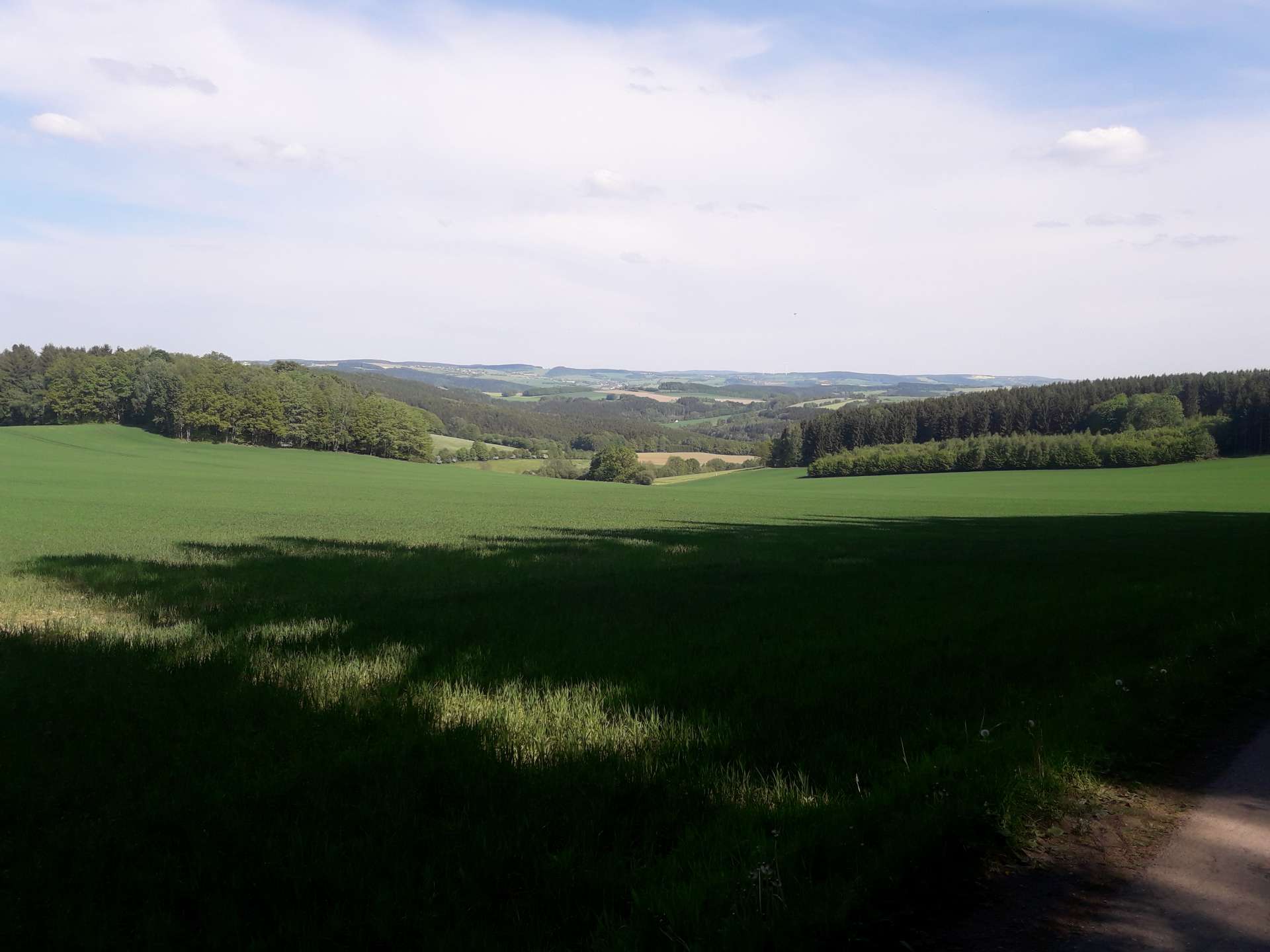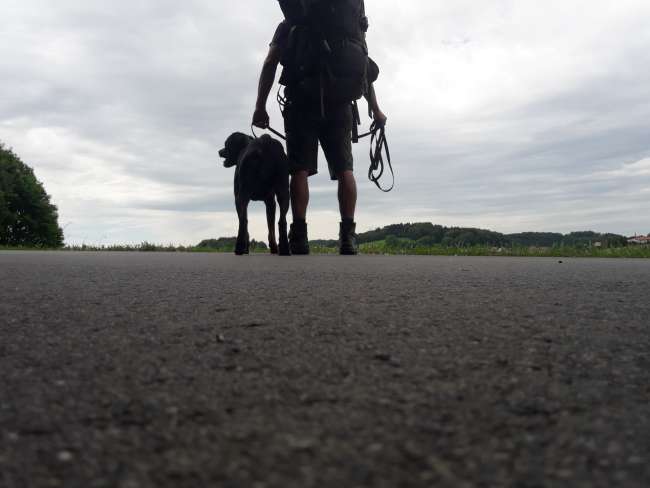Derweze - Ashgabat
発行済み: 10.03.2020
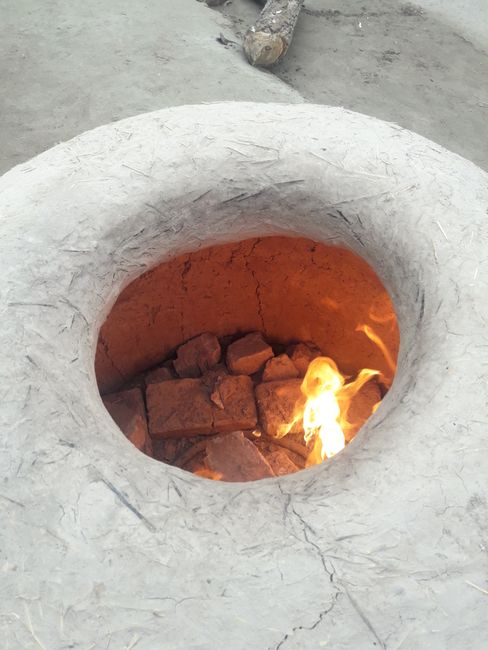
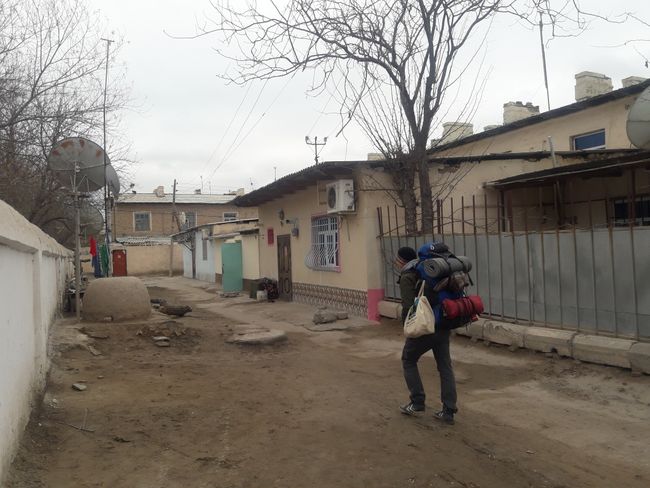
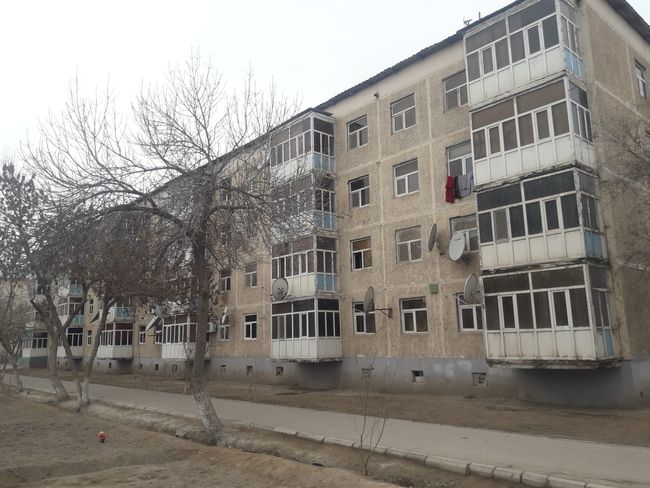
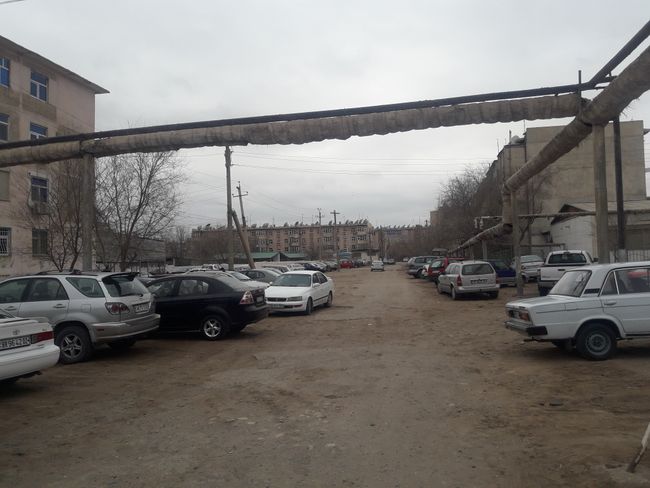
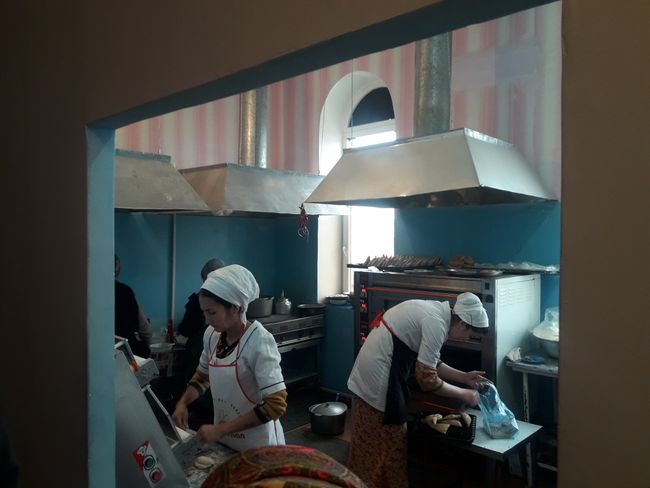
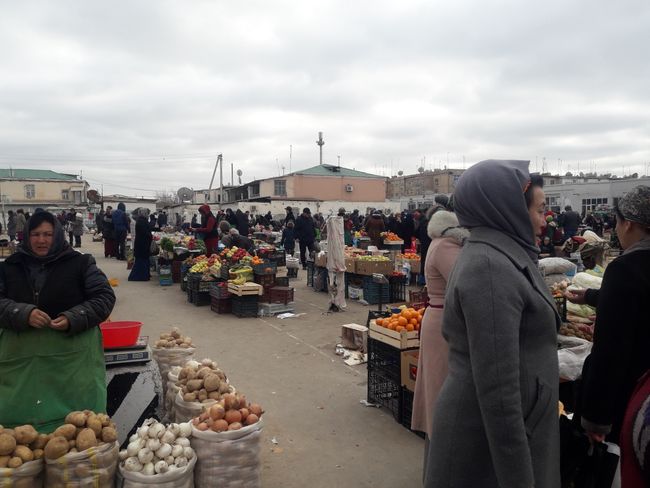
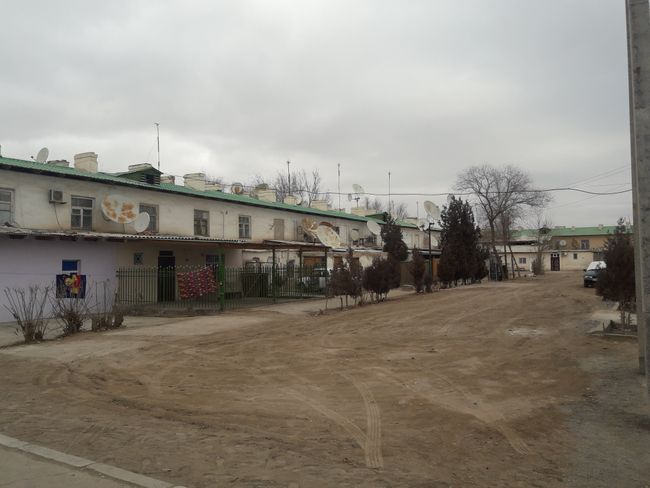
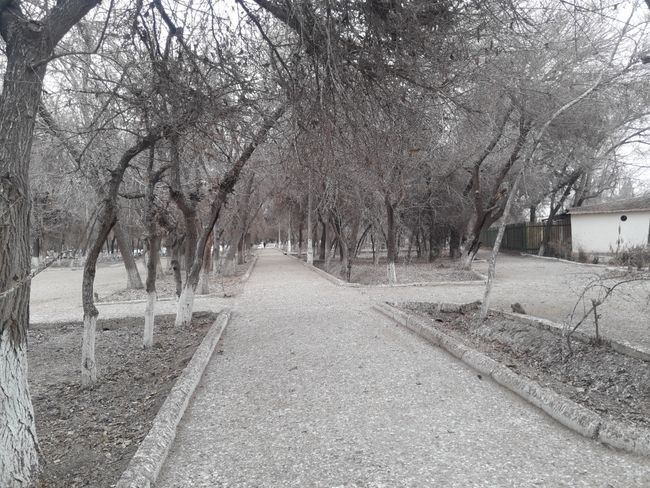
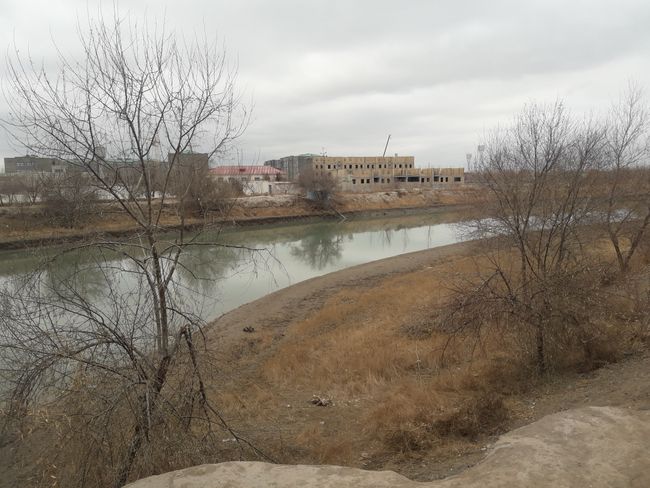
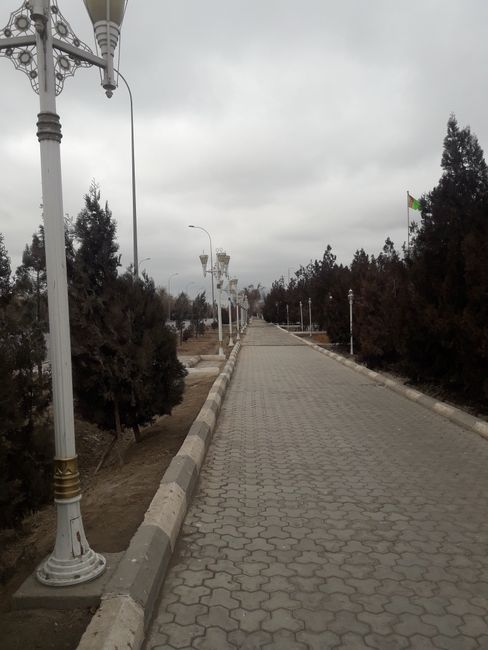
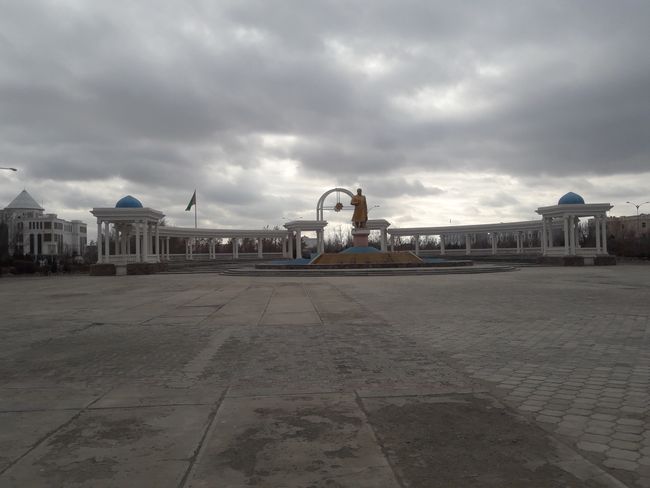
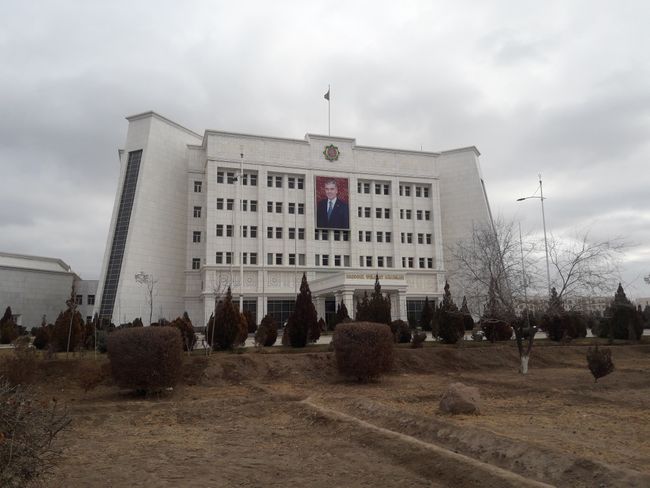
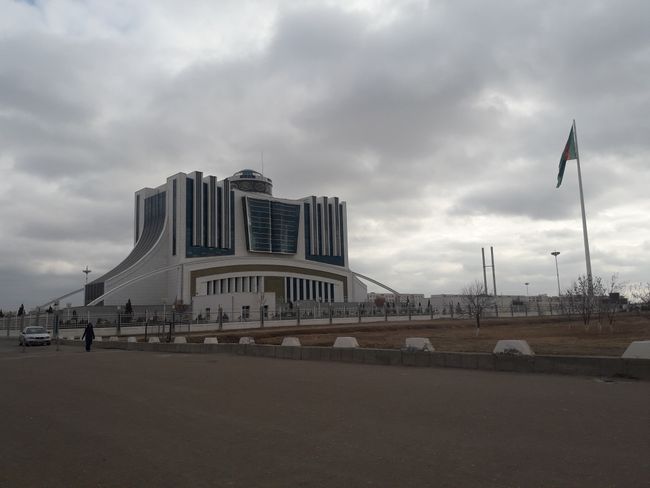
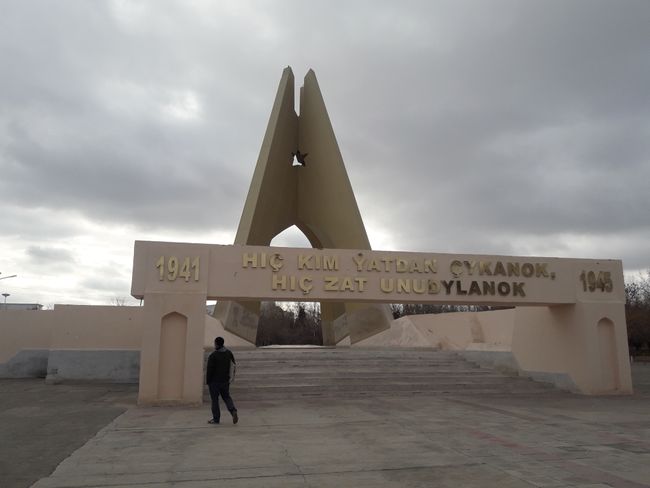
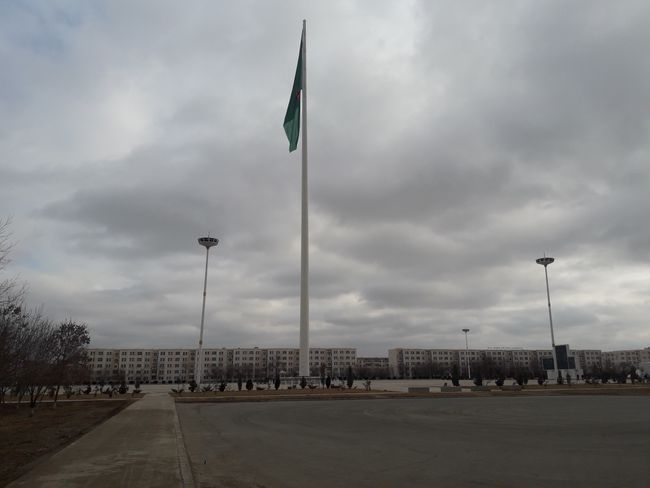
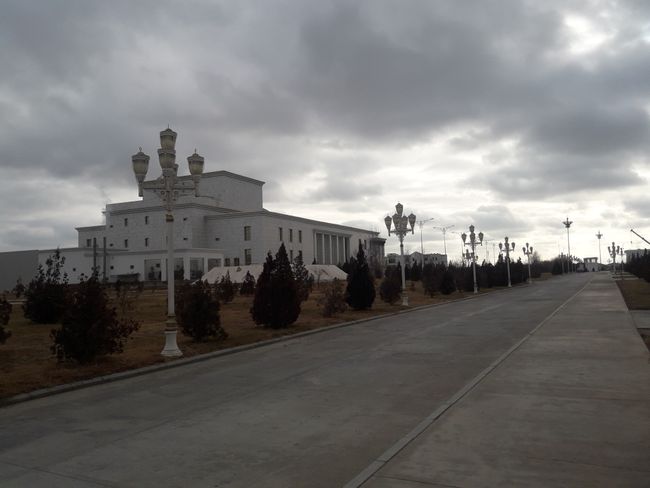
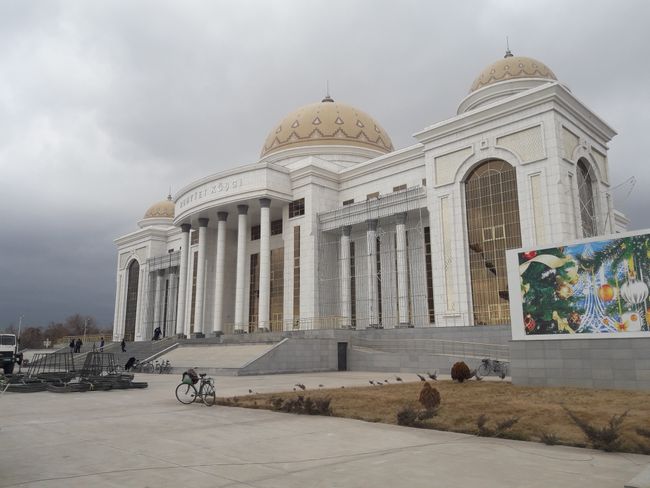
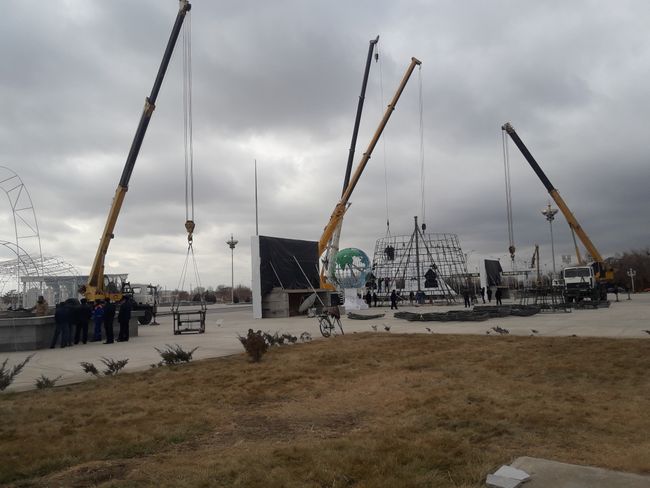
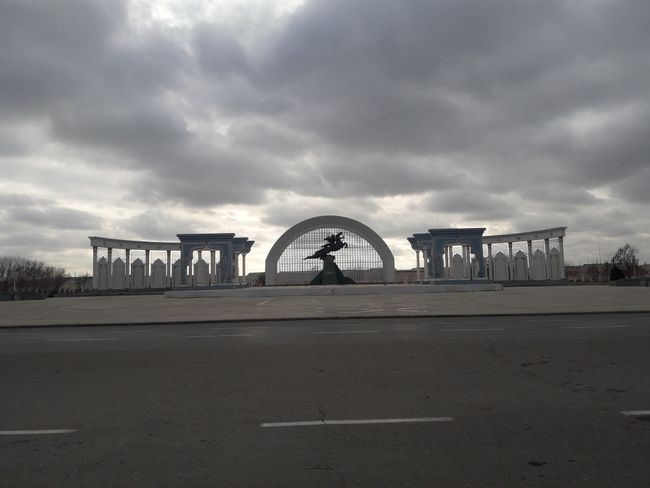
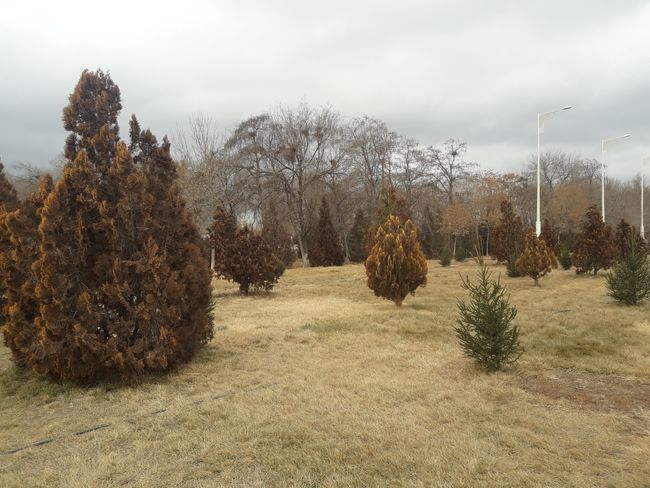
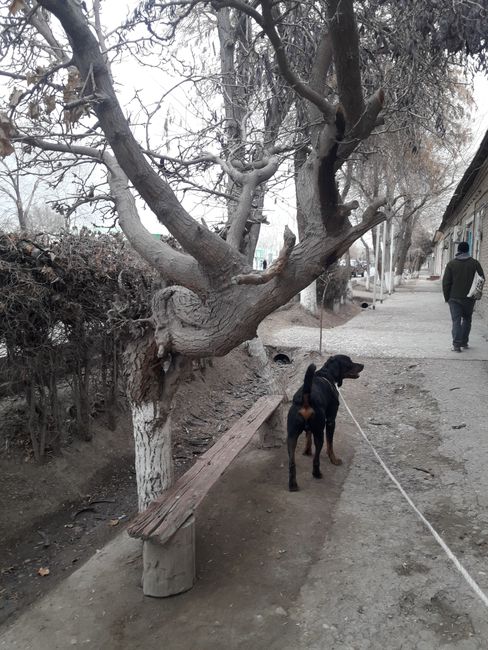
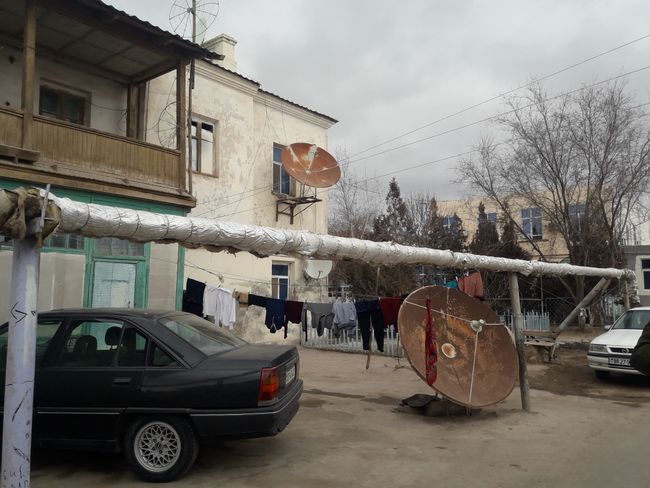
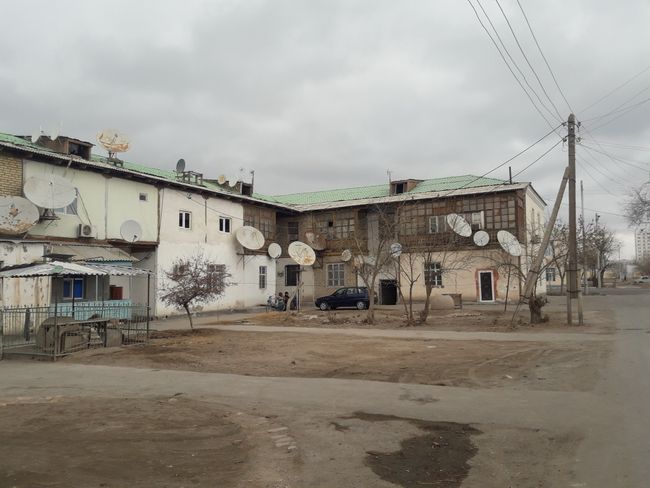
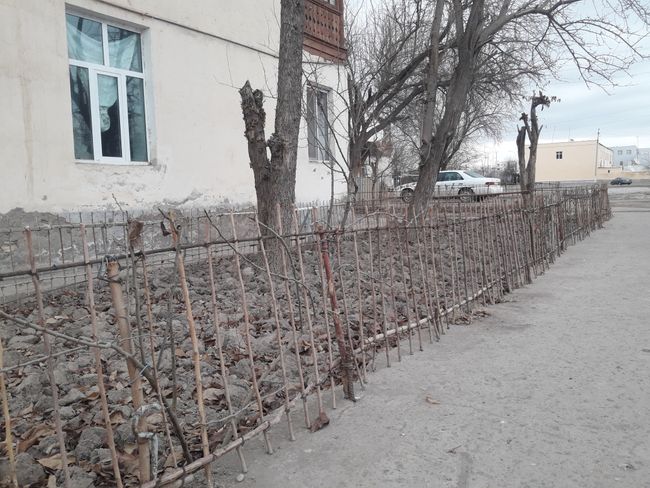
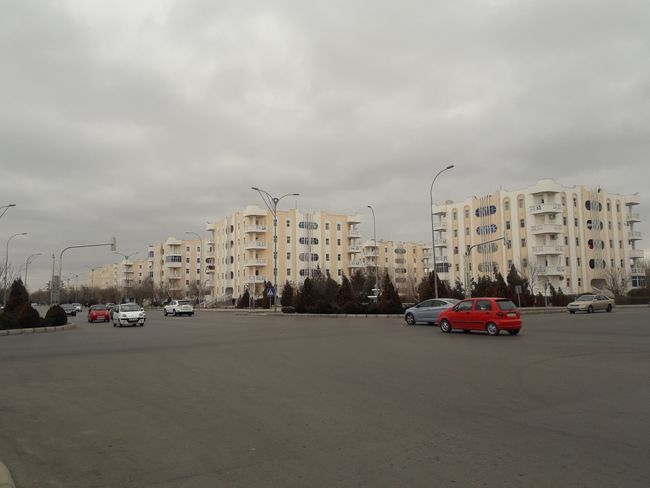
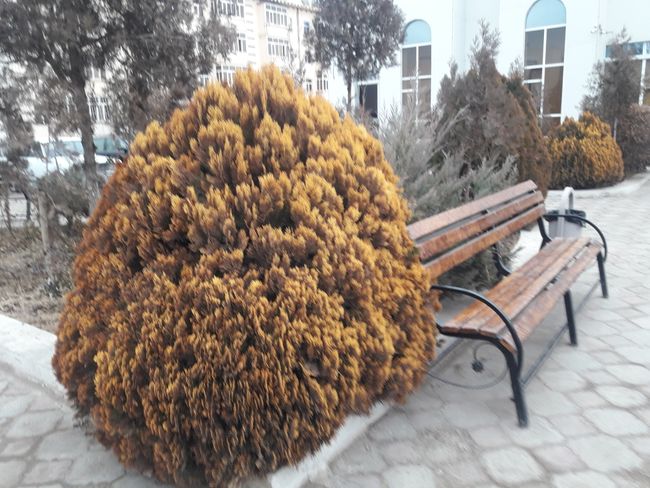
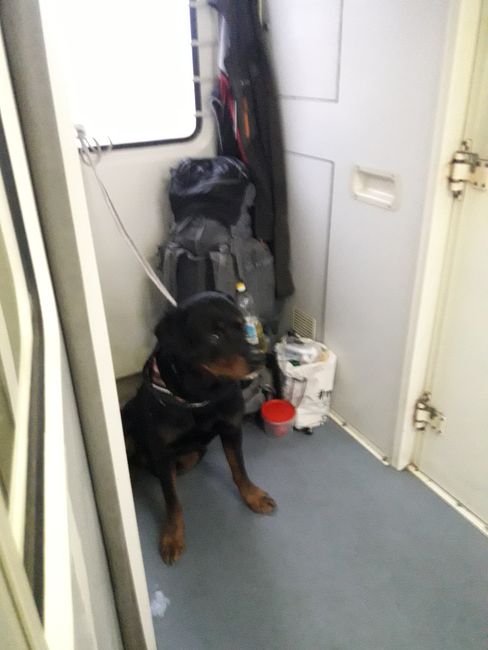
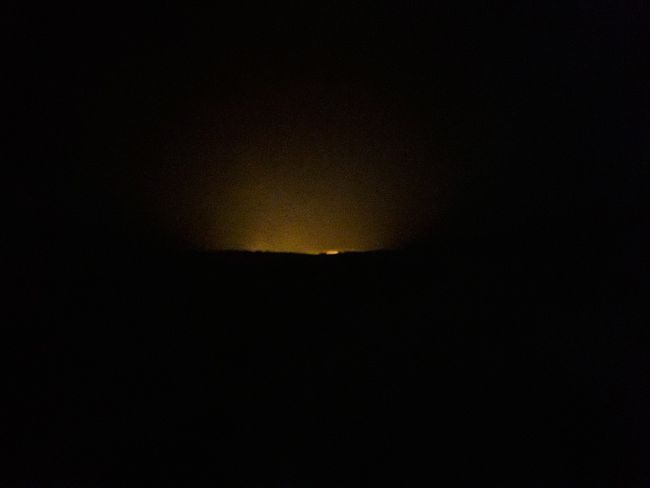
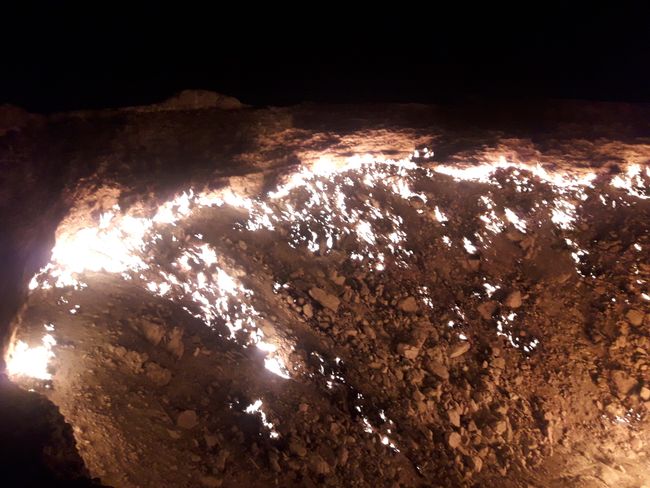
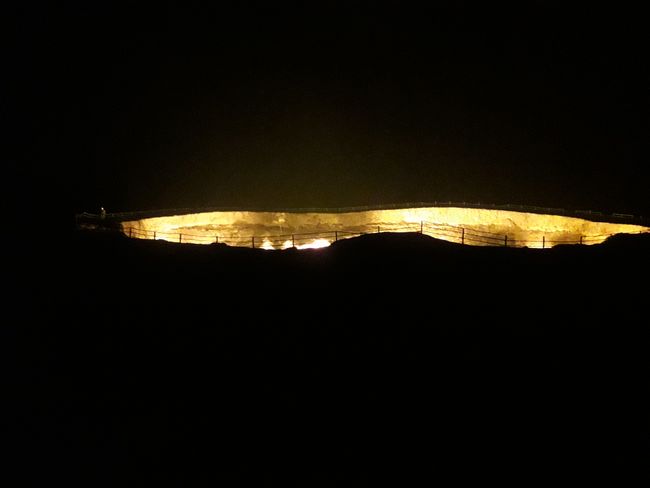
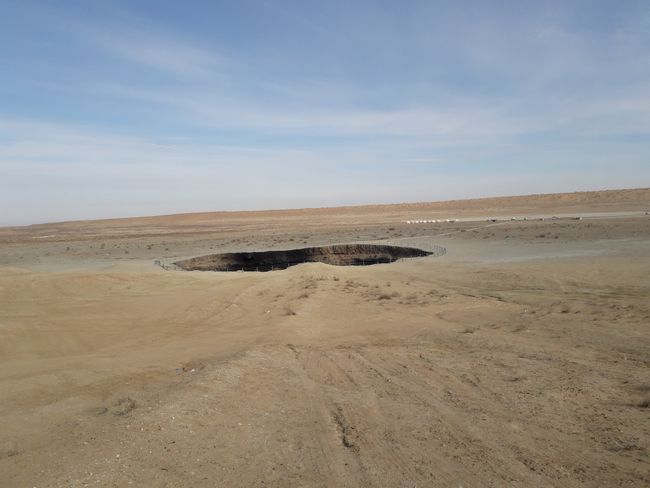
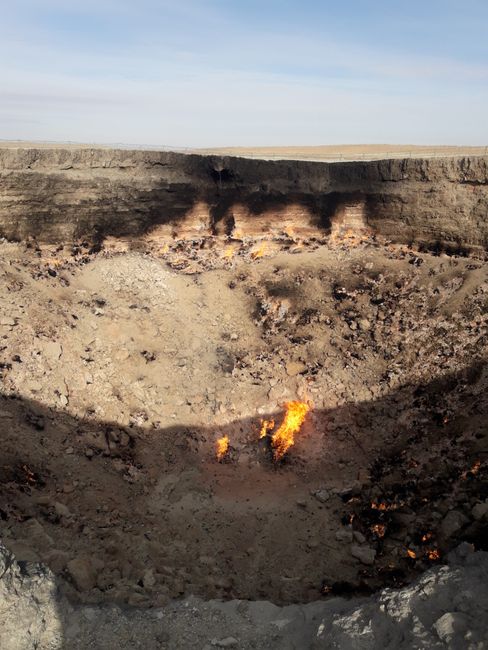
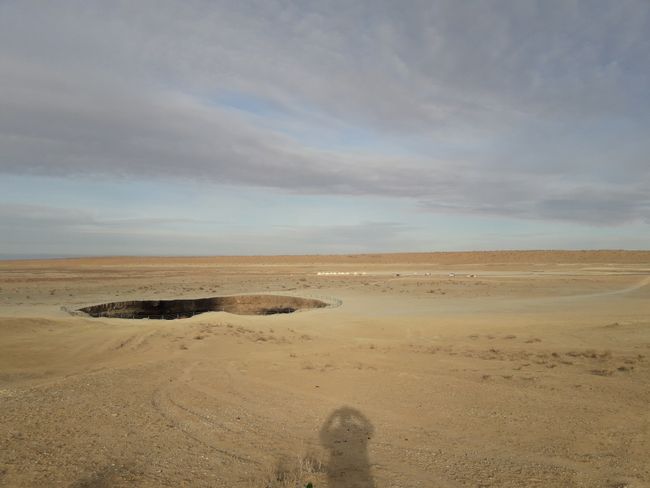
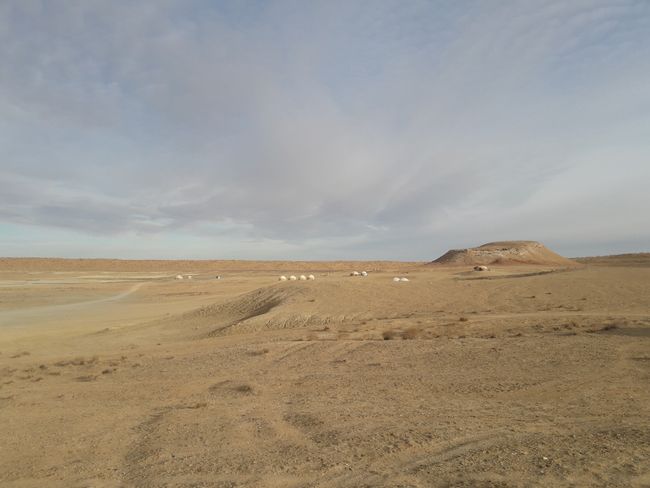
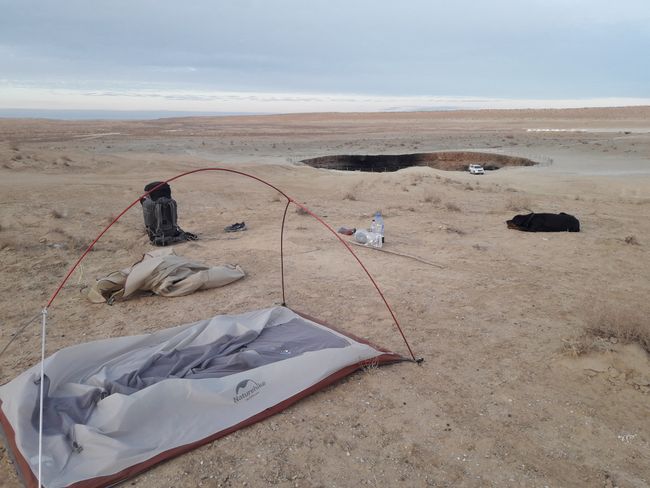
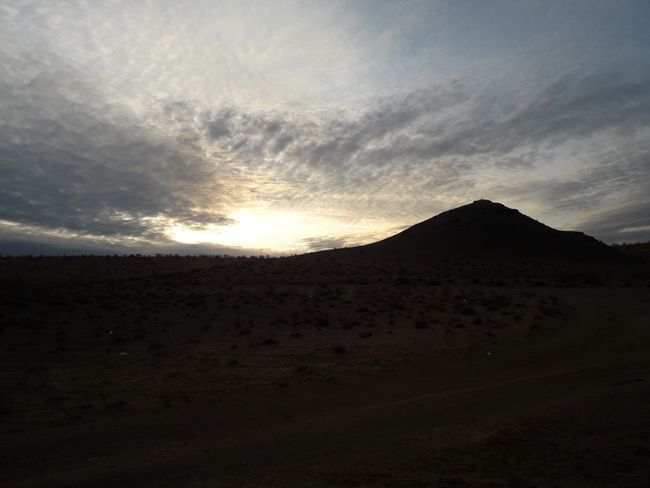
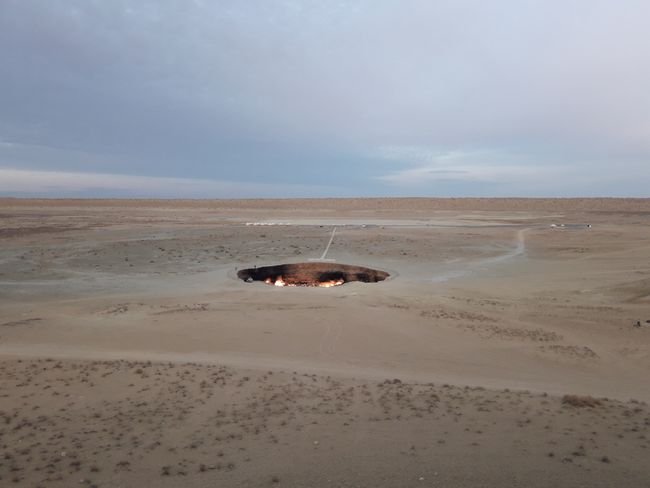
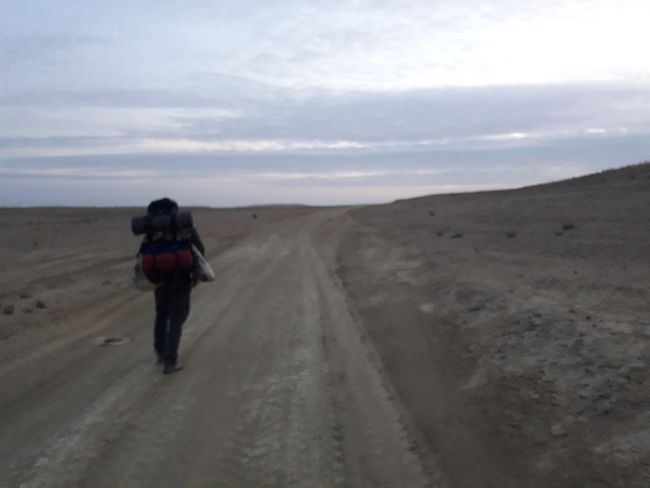
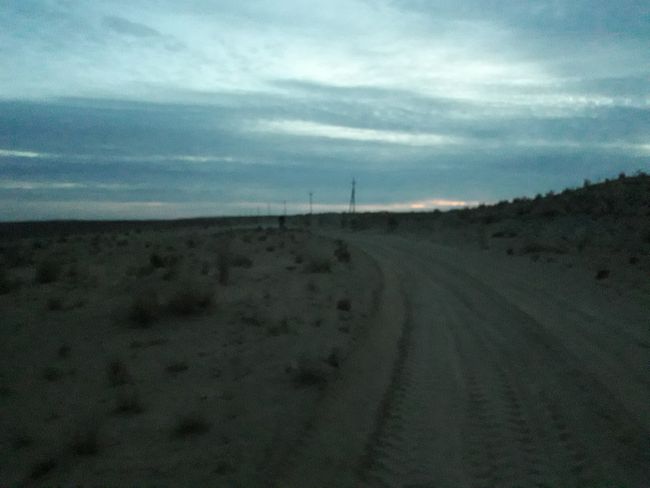
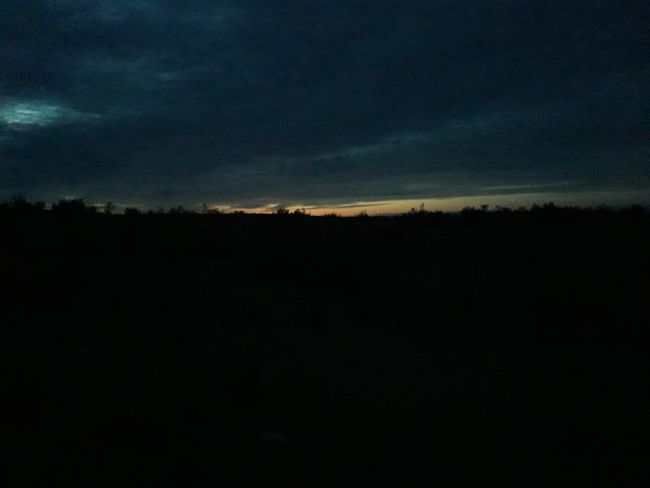
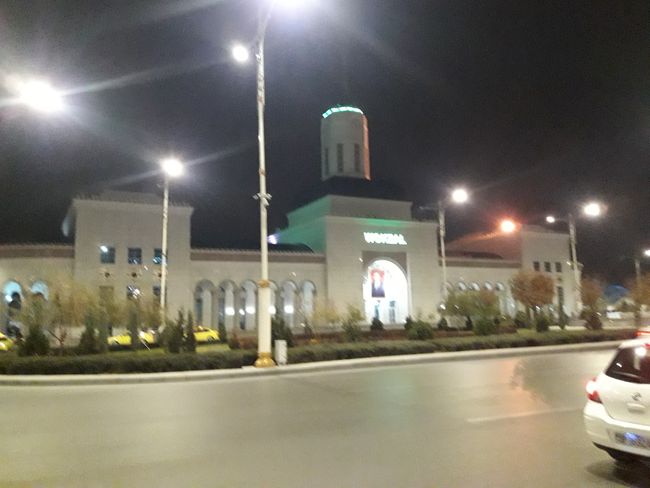
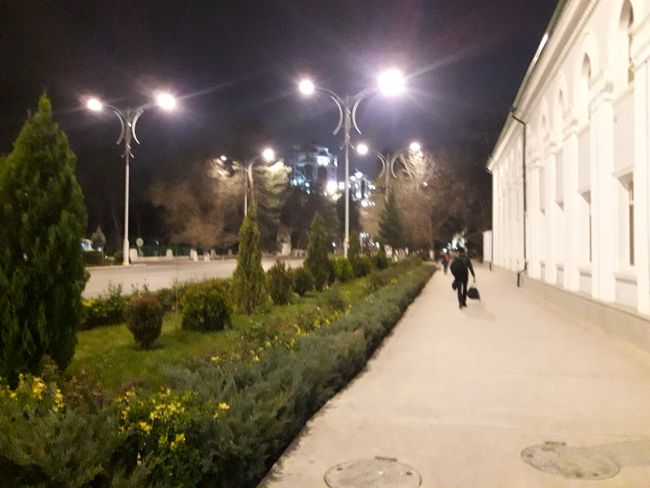
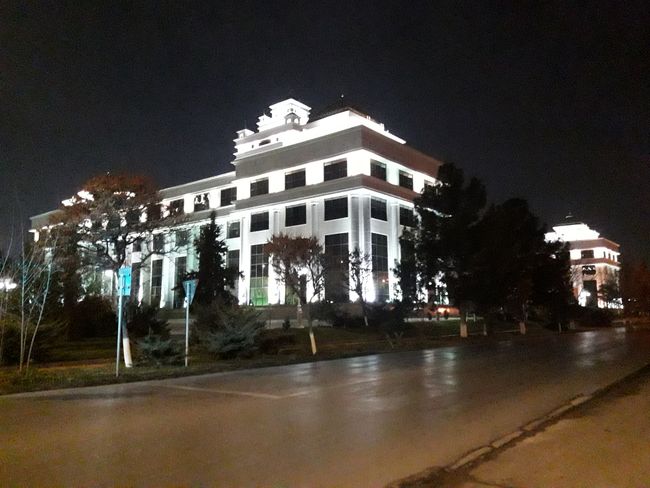
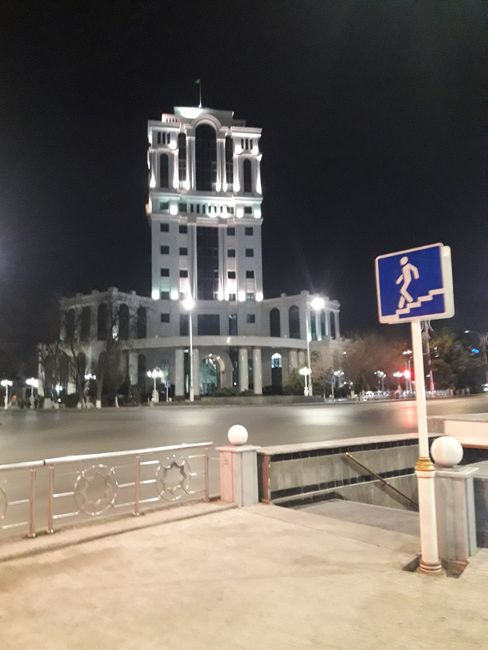
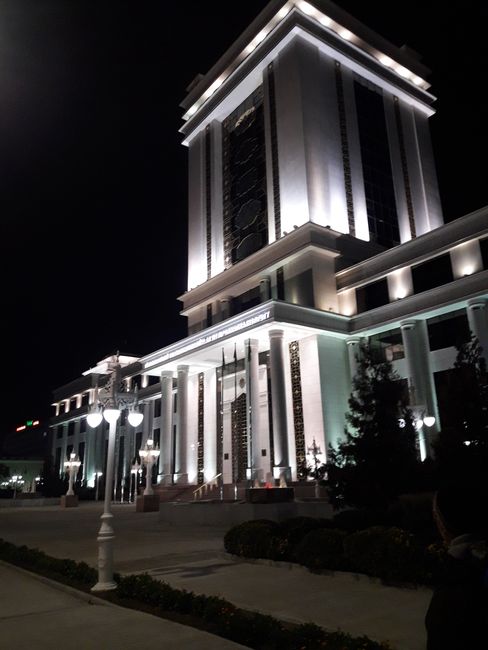
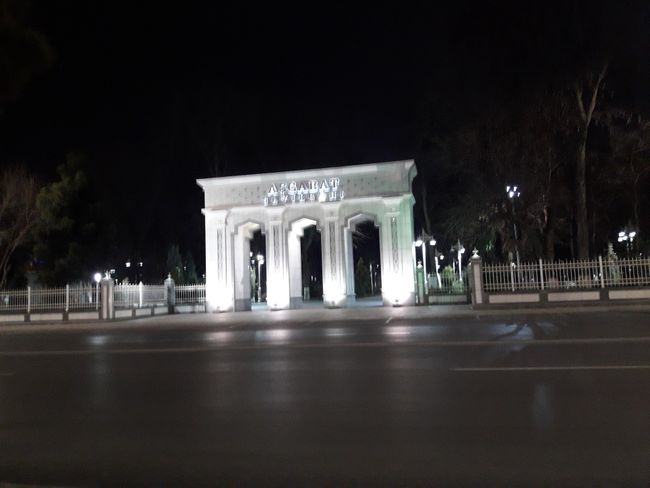
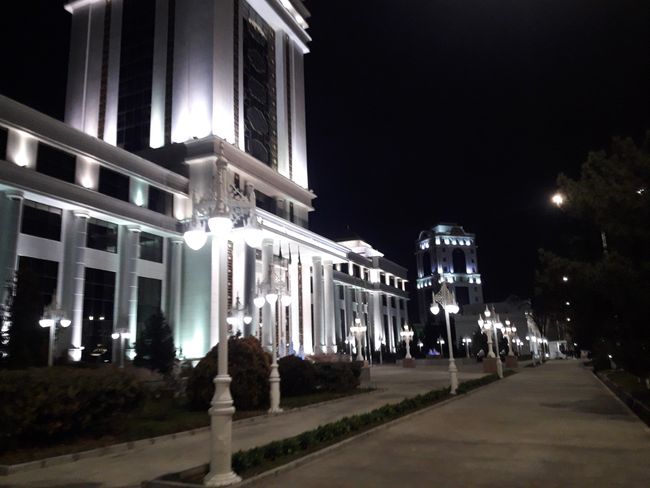
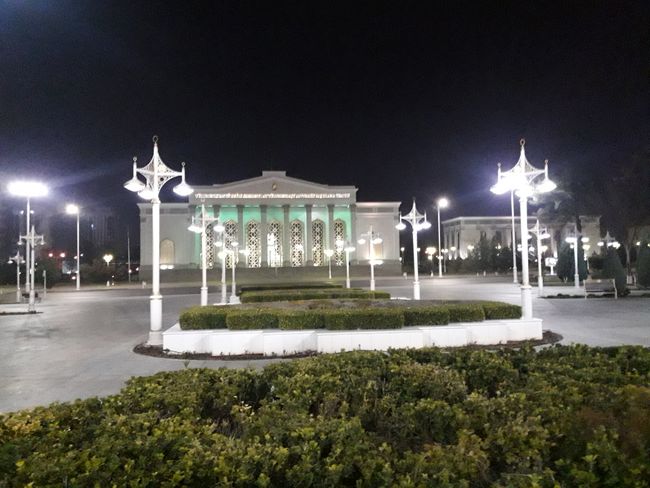
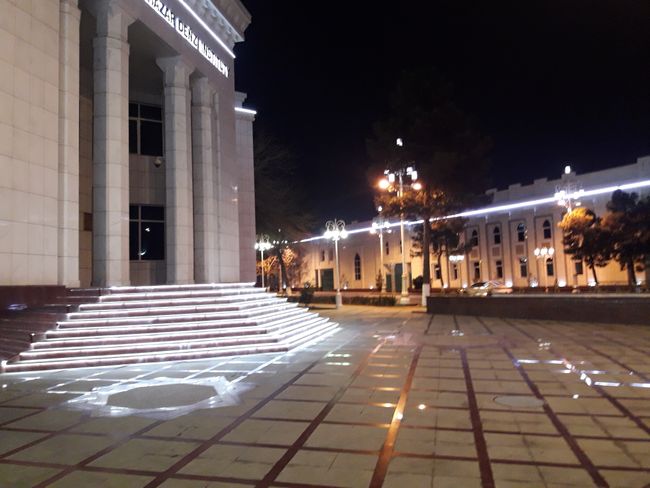
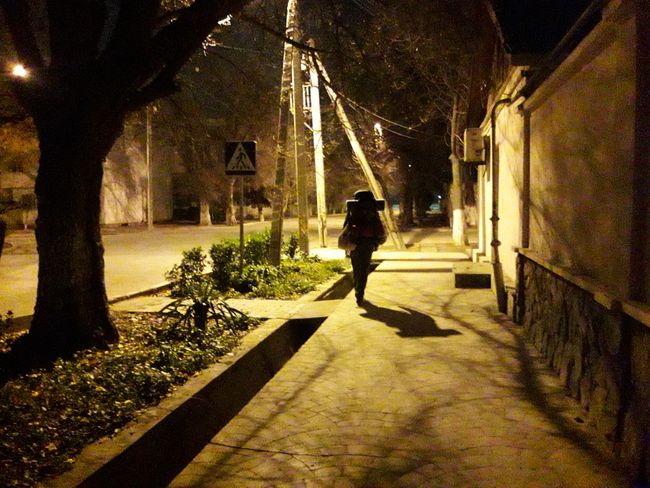
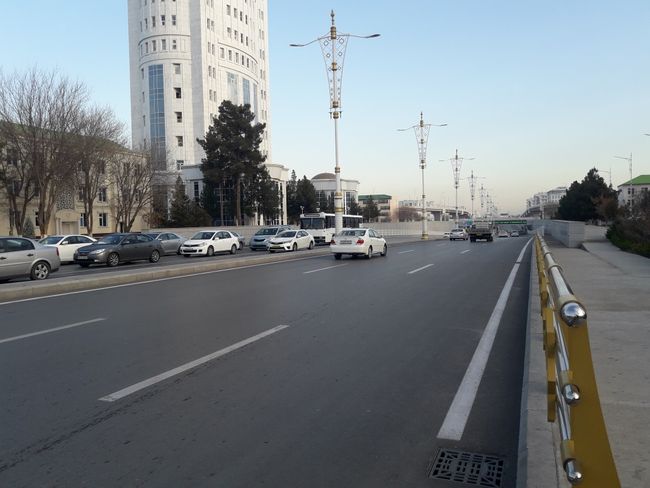
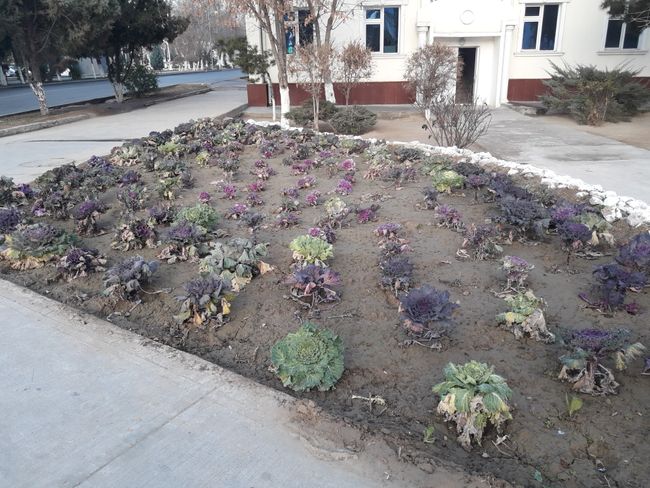
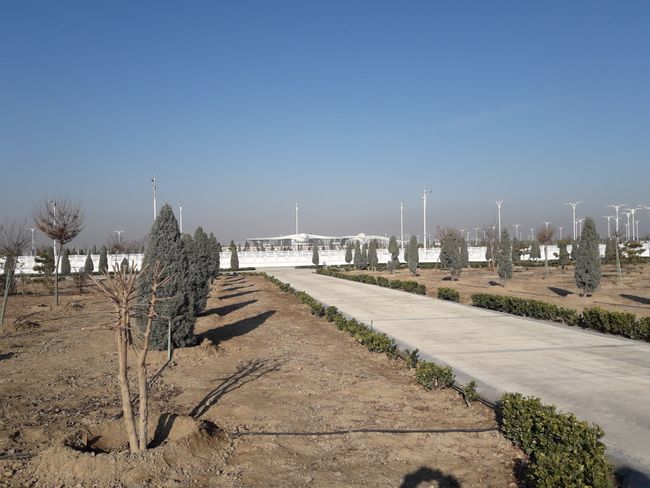
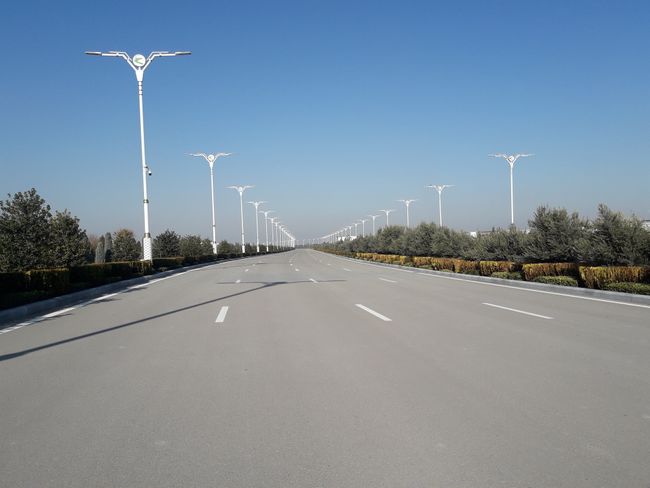
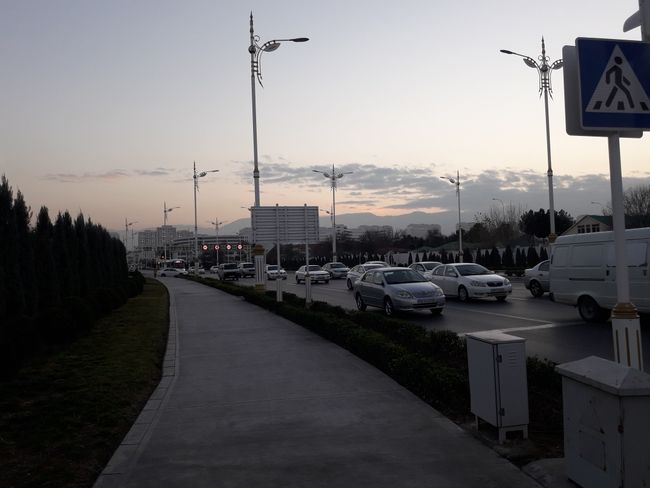
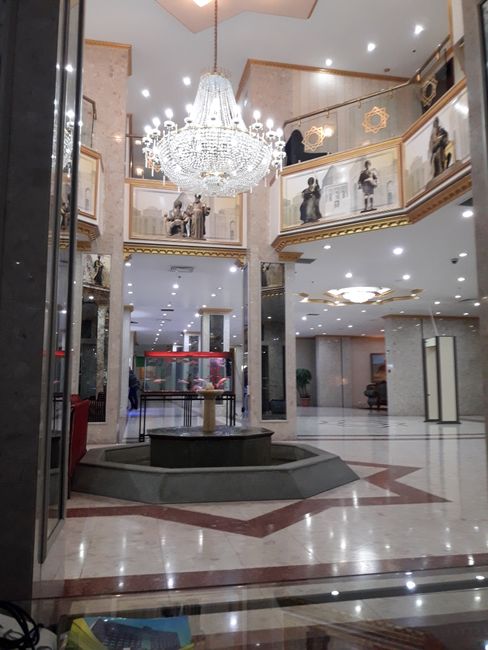
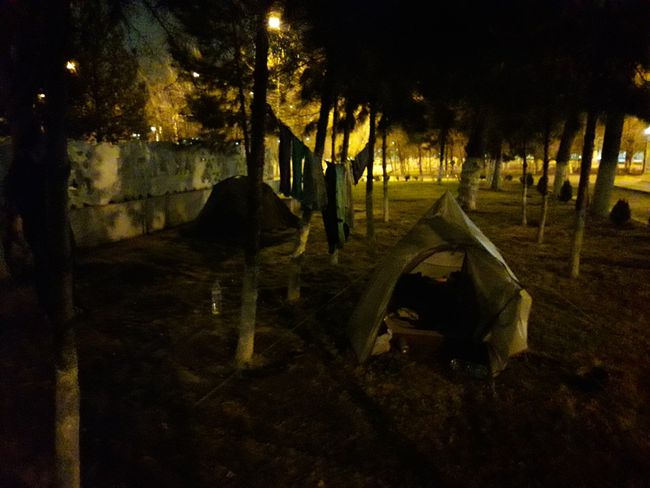
ニュースレターを購読します
From our accommodation at Daşoguz train station, we check out after eleven on Sunday noon (12.01.2020) and stroll towards the market. Here we find some Samsa, Shish kebab, and tea for breakfast in a snack bar. Meanwhile, Rango can enjoy some meat leftovers outside. Then we walk around the market and inquire at the bus station about options to go south. In the middle of the country, on the way to Ashgabat, there is a burning gas crater that we want to visit. Just like in Köneürgenç, all buses in Daşoguz also run in the morning. So we go back to the train station and buy tickets for the 5 pm train to Işoguz. Then we leave our backpacks at the hostel again and walk around the city. We pass through many parks, occasionally covered with bird droppings. It seems that some flocks of birds have passed through here not too long ago on their way south. Otherwise, rows of single-story houses dominate the scenery. There are a few representative buildings, such as theaters and museums. On the way back, we have a small shopping errand, we pick up our backpacks, wash the purchased vegetables, and then we are on time at the train station. Here we order two more tickets that are supposed to take us to Ashgabat overnight. After we have been assigned our seats in the train, I write something in my travel reports, start a conversation with a few Turkmens who immediately offer me tea, bread, and Samsa, and then I stay for a while. We leave the train at the Işoguz stop shortly before half past eleven. Under a starry sky and full moon, we walk towards the crater, which shines from afar.
It takes us about 2 hours until we arrive at the gates of hell around half past one in the night on Monday. It's nice and warm at the edge of the crater. With all the walking, the cold of the night didn't really bother us. I take a walk around the methane flare, set up my tent, and retreat into the sleeping bag. Around half past eight, I get Rango to snuggle under the sleeping bag in the morning. We both must have been quite tired because it is already half past twelve when we leave the tent. I have breakfast at the warm crater's edge and listen to a few podcasts on the side. Then we cook a small lunch. Anything we eat, we don't have to carry. A local person gives us some water and in return, we invite him for a coffee. Then we slowly pack up our stuff during the late afternoon. In the meantime, we strike up a conversation with a Romanian who tells us about demonstrations in Mashhad, where the angry Iranians are said to have shouted 'Death to the dictator!' Even in the religious center of the Shiites, they are only somewhat satisfied with their religious leaders. My theory 'Under pressure from the outside, the people gather behind their leadership.' crumbles. So in the early evening, we set off with mixed feelings towards the Islamic Republic. After two hours of hiking through the Karakum Desert, we reach the Işoguz stop again. It's freezing cold in the waiting hall. We warm ourselves up with some tea and our dinner, which we prepare directly in the otherwise empty train station hall. This way, we pass the time until our night train to Ashgabat with hearty scrambled eggs (olives, sausages, onions, and cheese complement the eggs) and bread. Shortly after eleven, we can get on the night train and spend a few more hours sleeping.
On Tuesday (January 14, 2020), the lights come on in the train and it's time to slowly get up. We arrive at the train station in the Turkmen capital around five and immediately start exploring Ashgabat. The city is mostly still asleep, so we return to the train station after an hour and doze off in the waiting hall until eight. Then we head back to a kind of canteen where we could refill water during our exploration and where we started talking to the Samsa responsible. So we have two soups and some Samsa for breakfast. Rango also gets some leftovers while he guards my backpack in front of the establishment. Then we set off well nourished in search of accommodation and explore the city on the way. For the time being, we have no luck until noon and return to the train station. Here we can buy some internet (Wifi) and treat ourselves to a coffee and some pastries. Couchsurfing and Airbnb do not help either in the short term. So we make our way towards the western outskirts of the city, where there seems to be a cheap place where we could stay for a night. On the way, we continue to look for alternatives and finally find luck in front of the Ak Altyn. We are allowed to set up our tents on the hotel grounds. The hotel shower is also available to us, and we can also use the Wifi in the lobby of the 4-star hotel. Perfect. So our budget allows for a small dinner in the neighboring café Üzum. In the upscale tavern, I enjoy a chicken noodle soup and a lamb curry with rice. Back at the Ak Altyn, I register online in the crisis preparedness list of the Foreign Office before I settle down in the tent with Rango. Despite the short stay, Turkmenistan has made a very good impression. Helpful and friendly people, good food, and surprisingly smooth transit to the south. Taking the dog along has proven to be a small obstacle, and apart from the visa and the entry fee (together $80), this section of the trip was also very affordable (5 days, ~$20).
ニュースレターを購読します
答え

旅行レポートトルクメニスタン
